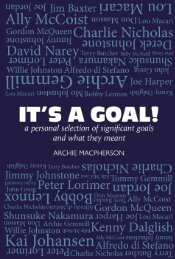Irish Unity by Ben Collins sampler
Irish Unity is the first book to explore Irish reunification in the aftermath of Brexit which is written by Ben Collins who comes from a pro-British and Unionist background and has lived and worked across the UK. In this book Collins explains how he has come to favour Irish Unity. He uses his twenty years of experience working in political communications to give his insight on the current situation regarding the building momentum for Irish Unity, the importance of the Good Friday Agreement and Brexit. In this book he sets out what it would take to win a Border Poll referendum and the importance of preparation in advance. Inspired by the momentum of the Scottish referendum and taking lessons from elsewhere, Ben Collins guides the reader through the steps needed from both sides that he believes will unite Ireland. Collins gives deep insight from a Northern Ireland perspective about how the financial, cultural and social ramifications could pan out for citizens in both parts of Ireland and how it would affect the United Kingdom, Europe and the world.
Irish Unity is the first book to explore Irish reunification in the aftermath of Brexit which is written by Ben Collins who comes from a pro-British and Unionist background and has lived and worked across the UK. In this book Collins explains how he has come to favour Irish Unity. He uses his twenty years of experience working in political communications to give his insight on the current situation regarding the building momentum for Irish Unity, the importance of the Good Friday Agreement and Brexit. In this book he sets out what it would take to win a Border Poll referendum and the importance of preparation in advance.
Inspired by the momentum of the Scottish referendum and taking lessons from elsewhere, Ben Collins guides the reader through the steps needed from both sides that he believes will unite Ireland.
Collins gives deep insight from a Northern Ireland perspective about how the financial, cultural and social ramifications could pan out for citizens in both parts of Ireland and how it would affect the United Kingdom, Europe and the world.
You also want an ePaper? Increase the reach of your titles
YUMPU automatically turns print PDFs into web optimized ePapers that Google loves.
timeline of key events<br />
24 March 1972: Direct Rule introduced in Northern Ireland and<br />
Stormont Parliament collapses.<br />
9 December 1973: the Sunningdale Agreement, which introduces<br />
power- sharing in Northern Ireland for the first time, is signed.<br />
1 January 1974: Sunningdale power- sharing executive meets for the<br />
first time.<br />
17 May 1974: Dublin and Monaghan bombs. UVF (Ulster Volunteer<br />
Force) planted three car bombs in Dublin and one in Monaghan<br />
which killed 33 civilians and injured 300.<br />
28 May 1974: Sunningdale Agreement collapses after Ulster Workers’<br />
Council Strike.<br />
1 May 1975: elections to Northern Ireland Constitutional Convention<br />
set up <strong>by</strong> UK government to deal with NI constitutional issues.<br />
3– 13 May 1977: United Unionist Action Council strike with<br />
aim of getting UK government to take tougher action against the<br />
IRA and return to a Unionist majority form of government in<br />
Northern Ireland.<br />
1 March– 3 October 1981: hunger strike protests <strong>by</strong> <strong>Irish</strong> Republican<br />
prisoners to demand reinstatement of political status.<br />
20 October 1982: elections to a Northern Ireland Assembly take<br />
place but Nationalist parties boycott the assembly and so planned<br />
devolution never takes place.<br />
15 November 1985: Anglo- <strong>Irish</strong> Agreement signed. Intention for<br />
the treaty to bring an end to The Troubles in Northern Ireland.<br />
23 June 1986: Northern Ireland Assembly is abolished <strong>by</strong> the UK<br />
Secretary of State for Northern Ireland.<br />
26 March 1991: Northern Ireland Secretary of State Peter Brooke<br />
informs House of Commons that ‘a basis for political talks now<br />
exists’. Becomes Brooke/Mayhew Talks.<br />
April 1991– 10 November 1992: Brooke/Mayhew Talks.<br />
15 December 1993: Downing Street Declaration, a joint declaration<br />
<strong>by</strong> Prime Minster of the UK John Major and the Taoiseach<br />
17


















